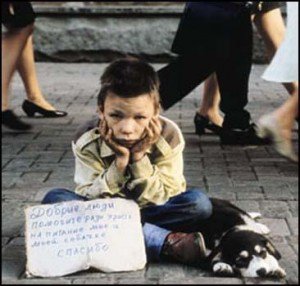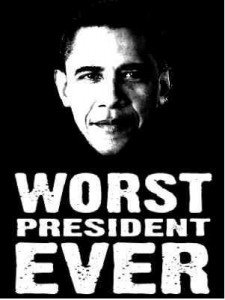Bad Economy, Bad Policy, More Poverty and Welfare Dependency
Since Obama took office, federal expenditures on welfare have increased by 41 percent, more than $193 billion per year. (Cato Institute, The American Welfare State, April 11, 2012)
By Ileana Johnson Paugh
Poverty is a relative term. Some people understand poverty as cash poor,  not having the latest electronic gadget, a huge house, or not taking an expensive vacation. Others think of themselves as poor because they fall behind a certain standard of living that they deem desirable. A third group of Americans may think they are poor because they fall behind the average income in the country. People confuse and interchange wealth, income, and cash constantly.
not having the latest electronic gadget, a huge house, or not taking an expensive vacation. Others think of themselves as poor because they fall behind a certain standard of living that they deem desirable. A third group of Americans may think they are poor because they fall behind the average income in the country. People confuse and interchange wealth, income, and cash constantly.
The figures listed below are the 2012 federal government’s poverty guidelines. However, they are not the figures that the Census Bureau uses to calculate the number of poor persons. The Census Bureau uses poverty threshold data based on gender, size of family, number of children, farm, and non-farm. (http://www.census.gov/hhes/www/poverty/data/threshld/index.html)
|
2012 Poverty Guidelines for the |
|
|
Persons in |
Poverty guideline |
|
1 |
$11,170 |
|
2 |
15,130 |
|
3 |
19,090 |
|
4 |
23,050 |
|
5 |
27,010 |
|
6 |
30,970 |
|
7 |
34,930 |
|
8 |
38,890 |
| For families/households with more than 8 persons, add $3,960 for each additional person. |
|
(http://aspe.hhs.gov/poverty/12poverty.shtml/)
According to Michael Tanner, “The poverty rate has risen to 15.1 percent of Americans, the highest level in nearly a decade…Welfare spending increased significantly under President George W. Bush and has exploded under President Barack Obama.” Since Obama took office, federal expenditures on welfare have increased by 41 percent, more than $193 billion per year. (Cato Institute, The American Welfare State, April 11, 2012)
Forty-six million Americans live in poverty, even though the government spent more than $15 trillion on welfare since President Lyndon Johnson enacted the war on poverty in 1964. We lost all battles because the federal government was not serious about winning this war, it did not concentrate on fixing the problems by adding jobs to the economy that created prosperity. We outsourced jobs, we “saved or created’ shovel-ready jobs for bureaucrats, and we made poverty comfortable and dependable for an increasing sector of the population.
If we compare these 46 million poor Americans to other nations, their poverty is considered comfortable in most places around the world and well-off in many other countries.
That is not to say that there are no Americans who do not genuinely need help. The lengthy recession born by the bursting of the housing bubble, the subsequent TARP, the failed stimulus, auto bailouts, the mismanaged economy, the crony capitalism, created real victims who lost their homes, their jobs, their insurance, and their livelihood. They did not deliberately “purchase” a home that they knew they could not possibly afford to repay, nor engaged in complicated derivatives trading with other people’s retirement money and savings.
Yet some Americans who truly needed help were reluctant to accept welfare or, if they did, the benefits were inadequate or ran out. There are always Americans in temporary or permanent need who fall through the cracks of welfare. It is people who know how to milk the system who benefit the most from the welfare largesse.
Being on welfare is not just the result of lack of a good education, bad choices in life, unwillingness to work, of a culture of entitlement (it is free and the government owes it to us), it is also a function of bad luck, personal injury, illness, and hard times during cyclical economic downturns.
The federal government uses personal income tax receipts to provide two-thirds of welfare funds, while state and local governments provide one-third from state tax receipts. Economically speaking, welfare is categorized as transfer payments.
 The largest transfer of payments (welfare) goes to Medicaid, food stamps (SNAP), Supplemental Security Income (SSI), Earned Income Tax Credit (EITC), Temporary Assistance to Needy Families (TANF), housing vouchers, State Children’s Health Insurance Program (SCHIP).
The largest transfer of payments (welfare) goes to Medicaid, food stamps (SNAP), Supplemental Security Income (SSI), Earned Income Tax Credit (EITC), Temporary Assistance to Needy Families (TANF), housing vouchers, State Children’s Health Insurance Program (SCHIP).
Medicaid spent the most on health care in 2011 – $228 billion for 49 million Americans. Food stamps or the Supplemental Nutrition Assistance Program (SNAP) was the second largest expenditure in 2011 with $72 billion for 41 million Americans. This year, 43 million Americans are on food stamps thanks to our tanking economy under the leadership and guidance of the current administration. According to Michael Tanner, Director of Health and Welfare Studies at the Cato Institute, federal spending on welfare rose 375 percent since 1965. Total federal welfare spending rose from 2.19 to 6 percent of GDP.
Since the inception of the War on Poverty, the federal government created 126 anti-poverty programs. There are some with overlapping missions:
– 33 housing programs administered by 4 different cabinet departments
– 21 food assistance programs administered by 3 different departments and one agency
– 8 health care programs run by 5 different agencies at HHS
– 27 cash/general assistance programs run by 6 cabinet departments and 5 agencies
“All together, seven different cabinet agencies and six independent agencies administer at least one anti-poverty program.” (Cato Institute, The American Welfare State, p. 3)
Keynesian economists suggested that a better way to tackle poverty was to give income to the poor without destroying their incentives to work via the earned income tax credit (EITC). As earnings of a family rose to a certain level, the federal government gave them a supplemental “grant,” proportional to earned wages. EITC began in 1975 but became increasingly more generous since 1993, giving income-support to over 22 million families. (Baumol and Blinder, Economics, 2007, p. 458)
We do know how well EITC works since illegal aliens, using an IRS issued number to encourage them to file income taxes, have taken advantage of this IRS loophole, raking in $6.3 billion a year in tax refunds, claiming children who are not even residents or citizens of this country.
Cato’s Michael Tanner suggests that making people more comfortable in poverty and government dependence is a bad idea – more food, better housing, more health care, free day care, etc. The solutions to get out and stay out of poverty:
- Finish school
- Do not get pregnant outside marriage
- Get a job, any job, and stick with it.
The Temporary Assistance for Needy Families (TANF), a very successful program from the Clinton era, was recently changed by a directive from President Obama to the HHS, from a cash safety net for families in need via a welfare-to-work program that promoted employment, into a funding source for idleness and stay-at-home permanent welfare voters.
“The broad purposes of TANF specified in the law:
– providing assistance to needy families so that children could be cared for in their own homes or in the homes of relatives;
– ending needy families’ dependence on government benefits by promoting job preparation, work, and marriage;
– preventing and reducing the incidence of out-of-wedlock pregnancies; and
– encouraging the formation and maintenance of two-parent families.”
(Kay E. Brown, Director of GAO, Testimony before the Senate Finance Committee, June 5, 2012)
Jonathan Alter, a left-wing writer, described in his book, The Promise, a short exchange that happened during President Obama’s first year in office:
“A congressman approached the first lady at a White House reception after  the [stimulus] bill’s passage and told her the stimulus was the best anti-poverty bill in a generation. Her reaction was ‘Shhh!’ The White House did not want the public thinking that Obama had achieved long-sought public policy objectives under the guise of merely stimulating the economy, even though that’s exactly what happened.” (As quoted by Paul Mirengoff in Powerline, July 30, 2012)
the [stimulus] bill’s passage and told her the stimulus was the best anti-poverty bill in a generation. Her reaction was ‘Shhh!’ The White House did not want the public thinking that Obama had achieved long-sought public policy objectives under the guise of merely stimulating the economy, even though that’s exactly what happened.” (As quoted by Paul Mirengoff in Powerline, July 30, 2012)
While we are $16 trillion in debt, with more Americans applying for disability than applying for jobs, the USDA’s “Reaching Low-Income Hispanics with Nutrition Assistance webpage states:
“USDA and the government of Mexico have entered into a partnership to help educate eligible Mexican nationals living in the United States about available nutrition assistance. Mexico will help disseminate this information through its embassy and network of approximately 50 consular offices.”
The USDA-Mexico partnership was signed in 2004, under President George W. Bush, by former USDA Secretary Ann M. Venemen and Mexican Secretary of Foreign Affairs Luis Ernesto Derbez Bautista. This begs the obvious questions, why does Mexico need 50 consular offices in the U.S. when all other countries have only one consulate, and why are we responsible to feed Mexican nationals, including illegal aliens with their anchor babies?
Eradicating poverty should be more than just streamlining welfare – it should be about fighting the real causes of welfare dependency: the breakdown of families, rejection of faith, truancy, dropping out of school, having babies outside of marriage, drug use, crime, and lack of personal pride, responsibility, and accountability for one’s actions. Spreading the wealth, the socialist goal, is a dystopia that will further enslave people into perennial poverty.
Representatives Jim Jordan and Steve Southerland II suggested, “Congress should block-grant the [welfare] funds to states and let them innovate. Grass-roots organizations and state and local leaders know better than Congress what works in their communities.” Follow the model of Habitat for Humanity that requires families to put in “hundreds of hours of sweat equity before getting a new home.”
Taking care of the truly needy and disabled is the right thing to do in our civilized society. Taking advantage of a system that has gone beyond generosity and making welfare a life-style choice and career opportunity is honor-less.
Dr. Ileana Johnson Paugh is a freelance writer (usACTIONnews.com, Canada Free Press, Modern Conservative, Anystreet.org) and speaker who recently published a book about her 20-year experience with communist life, “Echoes of Communism,” available at Amazon in paperback and Kindle. Short essays describe health care, education, poverty, social engineering, and confiscation of property, among other subjects.
Dr. Johnson can be reached at: ileana1959@gmail.com
Help Make A Difference By Sharing These Articles On Facebook, Twitter And Elsewhere:
